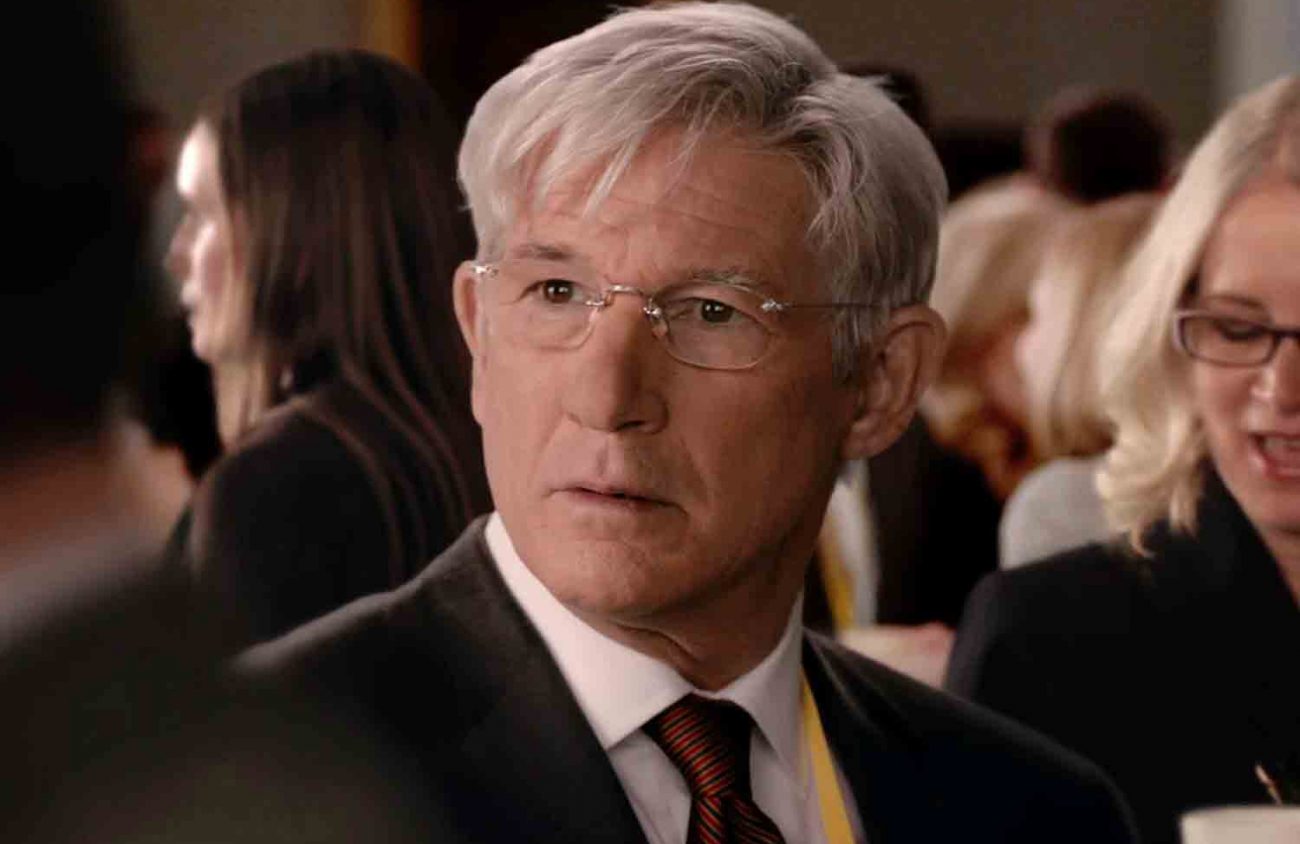Whether aging is kind to an actor seems to be largely a matter of choice, and by extension, integrity. Often, great actors getting on in years seem to opt for a kind of working retirement, leaning back like a senescent actor emeritus on the coattails of previous grand achievements.
Robert De Niro comes to mind, a once-stunning actor who appears, bafflingly, to content himself now with reprising his early genius to the point of caricature and low comedy.
Then there’s Richard Gere, a solid actor who now, at 68, might be approaching the late-career brilliance of Peter O’Toole and Jack Lemmon. As the shambling, needy, eternally optimistic con man at the center of Norman, Gere is absolutely enthralling.
In his mauve trench coat and thick woolen scarf, Norman is a fixer who spends his days frantically wheeling and dealing around New York, always seeking the next big connection that will skyrocket him to fame and riches. A reverse negative of Willy Loman’s doomed salesman, Norman lives in a delusion of greatness, and he peddles his lies with a vigor that belies the sadness lurking just behind his eyes.
At the film’s open, Norman somehow finagles an introduction to Micha Eshel (Lior Ashkenazi), an Israeli deputy minister whom Norman ushers into a Manhattan shoe store with some cooked-up scheme of transferring foreign debt for profit (“eighty cents on the dollar!”); he buys Eshel a pair of fabulously expensive shoes to grease the deal, which later falls apart.
Fast-forward a few years, and Eshel is elected Israel’s prime minister. Never forgetting the kindness of his New York friend, Eshel’s warm embrace of this insignificant schlub sets Norman’s star on the rise until he becomes the anonymous center of an international scandal.
Written and directed by Joseph Cedar, Norman is the first great political satire of this terrible new era in American history — Being There for the Age of Trump. Like Chauncey Gardiner, Norman is a blank slate, equal parts guilt and innocence, an everyman/nobody who seems to mirror and at the same time channel the desires of everyone he attempts to manipulate with his combination of hangdog charm and anaerobic desperation.
Subtitled “The Moderate Rise and Tragic Fall of a New York Fixer,” the film is less a dark comedy than an absurd fable about the way small favors and everyday human weakness escalate into grand scandals capable of toppling governments. At the center of it all stands Norman, the cause and the scapegoat, a man eternally seeking relevance in a world quickly passing him by. His tragedy is our tragedy.
As good as the supporting cast is (Steve Buscemi is wonderful as the rabbi who gets caught up in one of Norman’s spun-out scams), it’s Gere who really makes this film. His performance is heartbreaking, and heartrendingly beautiful. As deceptive and annoying and cloying as Norman can be, you can’t look away from the chaotic, futile dynamo of his ambition, as this lovable loser attempts, against all odds, to wrest some final triumph from the sinkhole of self-defeat. (Broadway Metro)
